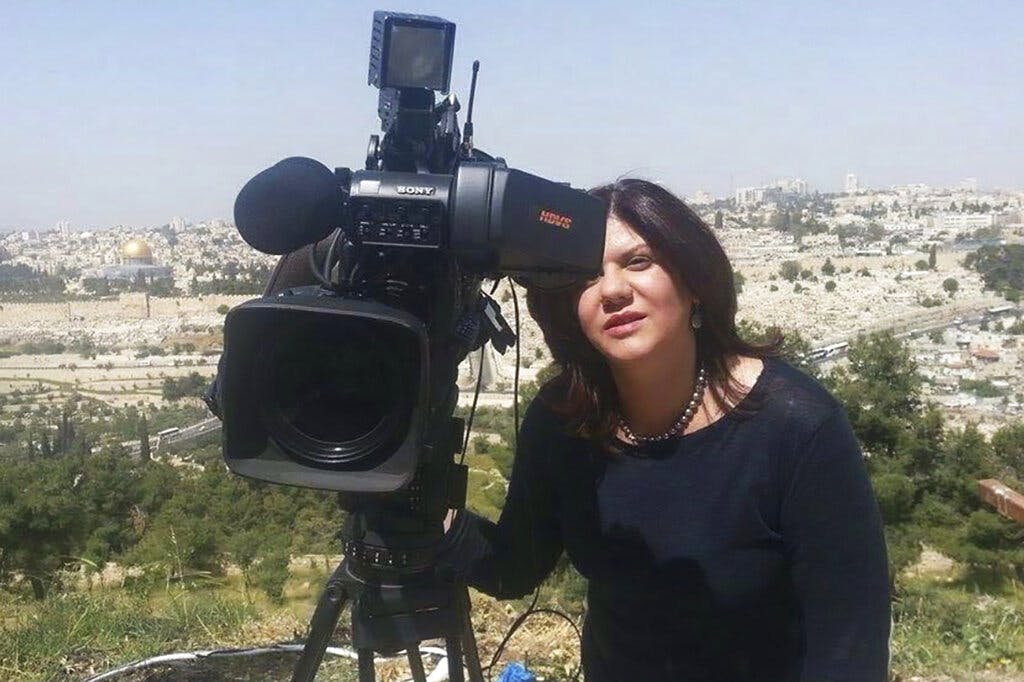Death of a Journalist in the Fog of War Becomes a Tragedy for Journalism, Too
The fatal shooting of a reporter is no time for a slew of unverified claims by journalists at some of the world’s leading news publications.

The tragic death of Al Jazeera journalist Shireen Abu Akleh, felled early today by gunfire at Jenin, is already bringing in its wake a slew of unverified claims by journalists at some of the world’s leading news publications.
Reports indicate that Shireen Abu Akleh, a veteran correspondent wearing a vest identifying her as press, was killed overnight as she was covering a raid in the West Bank city during a clash between Israeli forces and Palestinian gunmen.
Al Jazeera, which is widely viewed in the Arab world — where an errant report can have big repercussions — and the Palestinian Authority were quick to claim that the IDF forces were responsible.
Israel’s prime minister, Naftali Bennett, disputed the charge, citing “information we have gathered.” He says “it appears likely that armed Palestinians — who were firing indiscriminately at the time” — were to blame.
The Palestinians then turned down a “joint pathological investigation” offered by Israel’s foreign minister, Yair Lapid. According to Israel’s Channel 12 television, a Palestinian pathologist concluded, after an autopsy, that the bullet that killed Abu Akleh was of 5.56 caliber from a M-16 rifle.
As the rifle is used both by the Israeli military and Palestinian gunmen, the pathologist declined to assign blame. Israeli officials say that if they get access to the bullet, they would be able to identify if it was shot by one of the IDF soldiers.
A joint investigation could help to ascertain the truth in the case, and as the victim was an American citizen, American input could help too.
None of this, however, was enough to stop Western journalists and editors from parroting the Palestinian and Al Jazeera’s claims without expressing a modicum of doubt. On Twitter, Bloomberg’s Ruth Pollard declared confidently that an “occupying force” had “killed a reporter.”
The Washington Post’s Rana Ayyub decried to her 1.5 million followers the “murder in cold blood by Israel.” Even the London Times, an outlet that usually does far better, declared in its initial headline that the journalist had been “shot dead by Israeli troops ‘in cold blood.’”
An initial NBC News report, noted by a Twitter sleuth going under the moniker Elder of Ziyon, repeated an obviously false Al Jazeera claim that Palestinian militants had not shot at Israeli forces during the incident. The claim was later removed by NBC, which also, inexplicably, removed mention of Mr. Lapid’s offer of a joint investigation.
There is no doubt that reporting under the “fog of war” is a precarious matter. It has at times been the case that facts have emerged quite differently to how they were first reported. All the more essential is a degree of skepticism when reporting on conflict zones, no less the most contested conflict zone on the planet.
The irony is that the journalistic rush to judgment today has been in the name of justice for a slain journalist. The best way to honor Abu Akleh’s life and chosen profession comes with the practice of journalism with honesty and integrity.

